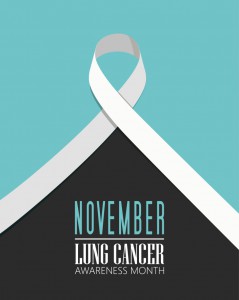
In this blog, NYC pulmonologist (lung specialist), Dr. Marc X. Bowen, will address why lung cancer has consistently been a leading cause of cancer deaths and how new lung cancer screening measures are improving the outlook of this disease. He will also address what factors make you a candidate for lung cancer screening.
Why is lung cancer so deadly?
For decades, lung cancer has remained the leading cause of cancer deaths, resulting in approximately 160,000 American lives lost each year. To put this statistic into perspective, more lives are lost to lung cancer each year than the total number of annual deaths from breast, prostate and colon cancers combined. There are a number of reasons why the death toll is so staggering. One primary reason being that lung cancer often shows no symptoms until it has already progressed to an advanced stage, at which point there may be little or no treatment options available. To make matters worse, when symptoms do appear, they may seem non-threatening so medical evaluation and proper diagnosis may be further postponed. For example, something as common as a chronic cough may be the first manifestation of lung cancer.
Another factor to consider in lung cancer’s high death toll is tied to the widespread prevalence of smoking – many victims being those who smoked before they knew the true dangers of the habit. Sadly, this unfortunate smoker stigma and lung cancer connection has also played a part in the relative dearth of research funding for the disease compared to other cancers.
What does early lung cancer detection do?
New breakthroughs in lung cancer screening measures are changing the future and outlook of this disease. Through proactive screening of high-risk patients, lung cancer can be caught in its earliest, most treatable – if not curable – stages. In fact, a study in the New England Journal of Medicine found that annual lung cancer screening with CT scans can detect 85 percent of lung cancers in these early stages. This means more treatment options and more hope for the many patients and their families who will be touched by this disease.
What’s involved in a lung cancer screening?
Undergoing lung cancer screening is a straightforward and noninvasive process. You will be positioned inside of a CT machine that uses low-dose radiation to take images that create a very detailed picture of what’s going on inside your chest. Since it’s a low-dose CT scan, there is minimal radiation exposure. From these images, your doctor will be able to identify if there are any suspicious spots on the lungs (called “lung nodules”) that may require further testing.
Am I a candidate for lung cancer screening?
There are many specifications that may make you eligible for lung cancer screening. The following factors are all things that are taken into account when making a recommendation to undergo screening for lung cancer:
- Between the ages of 55 and 80
- A current smoker
- A former smoker who quit within the past 15 years
- A patient with a history of heavy smoking
Heavy smoking is defined as smoking an average of one pack of cigarettes per day for 30 years or more, 2 packs per day for 15 years, 3 packs per day for 10 years, etc.
In addition, screening for lung cancer is often the next step if a patient receives an abnormal X-ray finding such as a spot on the lung.
How do I find out whether I’m a candidate for lung cancer screening in NYC?
A thorough evaluation and medical history with an experienced NYC lung doctor is the first step to determining whether you’re a candidate for lung cancer screening. If you have a history of smoking and are experiencing shortness of breath, a chronic cough, or have been told of an abnormal chest X-ray finding, then you may have valid reasons to request a Pulmonary Consultation and further lung function testing. After evaluating you, Dr. Marc Bowen will be able to recommend whether you should go for screening. He will also be there to provide compassionate care and answers to all of your concerns and questions should you receive abnormal results.
You can make an appointment with Dr. Bowen at MXBowen, Physician P.C., Health & Breathing Center by contacting our office.

